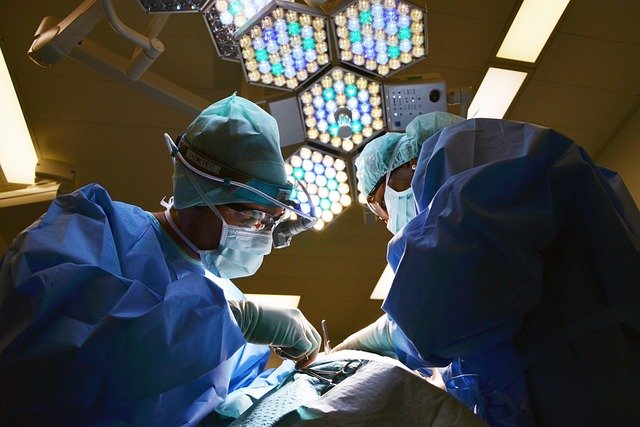Effective Relief for Varicose and Spider Veins in North Carolina
Varicose veins and spider veins can be a source of discomfort and aesthetic problems for many people in North Carolina. Understandably, their appearance or symptoms can be distressing. However, there is good news: modern medical advances offer effective and surprisingly convenient solutions.
Understanding Varicose and Spider Veins
Varicose veins appear as swollen, twisted veins that often bulge near the surface of the skin. They typically develop in the legs and feet due to increased pressure in the lower body. When the valves in your veins become weak or damaged, blood that should be moving toward your heart can flow backward and pool in the veins, causing them to enlarge and twist.
Spider veins, on the other hand, are smaller, thread-like veins that appear close to the skin’s surface. They often look like tree branches or spider webs with their short, jagged lines. While they’re commonly found on the legs, they can also appear on the face.
Both conditions share common risk factors, including:
-
Age (risk increases with age)
-
Family history and genetics
-
Pregnancy
-
Prolonged standing or sitting
-
Obesity
-
Hormonal changes
-
Previous vein damage
While spider veins are generally considered a cosmetic concern, varicose veins can cause physical symptoms such as aching pain, throbbing, burning, muscle cramping, swelling, and increased pain after sitting or standing for prolonged periods.
Modern Options for Vein Treatment in Twenty Minutes in North Carolina
North Carolina residents now have access to state-of-the-art vein treatments that often take as little as twenty minutes to complete. These minimally invasive procedures have largely replaced the traditional surgical approach known as vein stripping, which required general anesthesia and lengthy recovery times.
Endovenous laser treatment (EVLT) uses laser energy to close off problematic veins. During this procedure, a thin laser fiber is inserted into the affected vein through a tiny entry point. The laser heat causes the vein to collapse and seal shut. Blood flow naturally redirects to healthier veins, and the treated vein is gradually absorbed by the body.
Radiofrequency ablation works similarly to EVLT but uses radiofrequency energy instead of laser energy. Both treatments take approximately 20 minutes per leg and are performed under local anesthesia in an outpatient setting.
Sclerotherapy is particularly effective for spider veins and small varicose veins. This procedure involves injecting a solution directly into the vein, which irritates the vein lining, causing it to collapse and fade from view. Multiple veins can be treated in one short session, making it a time-efficient option for many patients.
VenaSeal is one of the newest treatments available in North Carolina. This procedure uses a medical adhesive to seal affected veins. Unique among vein treatments, VenaSeal typically doesn’t require the wearing of compression stockings afterward, making recovery even more comfortable.
Affordable Solutions Available for North Carolina Residents
Many North Carolina residents are pleasantly surprised to discover that vein treatments are more affordable than they might expect, especially when considering the long-term health benefits and improved quality of life.
Insurance coverage for vein treatments varies depending on the type of treatment and whether it’s deemed medically necessary. Generally, if varicose veins are causing symptoms such as pain, swelling, or skin changes, many insurance plans, including Medicare, will cover treatment. Purely cosmetic treatments for spider veins are typically not covered by insurance.
For those without insurance coverage or seeking cosmetic treatments, many vein specialists in North Carolina offer financing options, package pricing, and payment plans to make treatment more accessible.
| Treatment Type | Average Cost Range (Without Insurance) | Average Session Duration | Expected Recovery Time |
|---|---|---|---|
| Sclerotherapy | $300-$500 per session | 15-30 minutes | 1-2 days |
| Endovenous Laser Treatment | $2,500-$3,500 per leg | 20-45 minutes | 1-2 days |
| Radiofrequency Ablation | $2,500-$3,500 per leg | 20-45 minutes | 1-2 days |
| VenaSeal | $3,000-$4,000 per leg | 15-30 minutes | Minimal to none |
| Ambulatory Phlebectomy | $1,000-$2,500 | 30-60 minutes | 1-3 days |
Prices, rates, or cost estimates mentioned in this article are based on the latest available information but may change over time. Independent research is advised before making financial decisions.
Several leading vein centers in North Carolina offer comprehensive evaluations and customized treatment plans. Carolina Vein Specialists in Greensboro, The Vein Specialists of the Carolinas in Charlotte, and Duke Health Vein Clinics in Durham and Raleigh all provide state-of-the-art treatments with experienced physicians. Many centers offer free initial consultations to discuss symptoms, treatment options, and potential costs.
For patients with significant symptoms, seeking treatment sooner rather than later is often recommended, as varicose veins tend to worsen over time. Early intervention can prevent complications such as skin ulcers, bleeding, or blood clots that might require more extensive treatment.
Conclusion
For North Carolina residents dealing with varicose or spider veins, there’s no need to continue suffering from discomfort or feeling self-conscious about the appearance of your legs. Modern treatments offer quick, effective, and increasingly affordable solutions that can dramatically improve both the look and feel of affected areas. With procedures often taking twenty minutes or less, even the busiest individuals can find time for treatment. As with any medical condition, consultation with a qualified vascular specialist is the best first step toward determining the most appropriate treatment for your specific situation.
This article is for informational purposes only and should not be considered medical advice. Please consult a qualified healthcare professional for personalized guidance and treatment.





